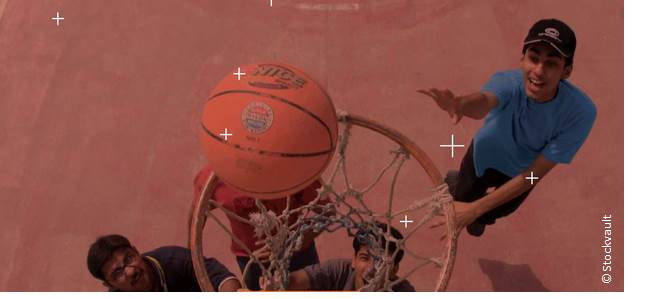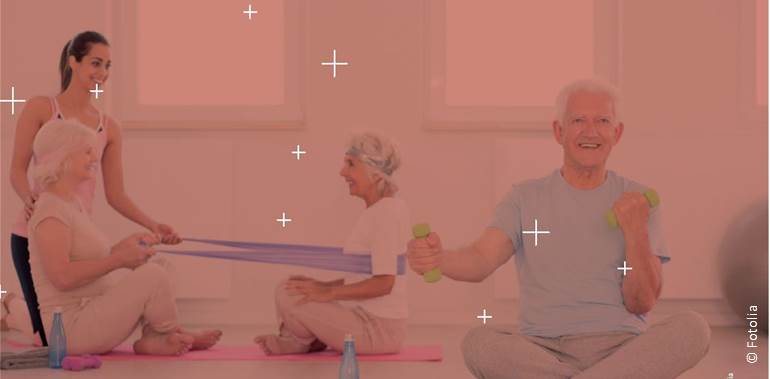3 Professional Bachelor’s Degrees
Professional Bachelor’s Degree in GDOS
Professional Bachelor’s Degree in Management and Development of
Sports Organisations (GDOS)

The aim of this professional bachelor’s degree is to train directly operational managers of sports and/or leisure structures, with development responsibilities.
A distance-learning course, with 1 or 2 days in class every 5 weeks, adapted both for working professionals and students in initial education.
A distance-learning course, with 1 or 2 days in class every 5 weeks, adapted both for working professionals and students in initial education.
Course content (details here)
E-learning classes enable students to develop the skills necessary to perform the targeted jobs: managing the sports organisation and its resources; managing projects; negotiating, convincing others and selling, etc.
Course organisation
The course is taken in distance-learning mode (teaching content on the SPIRAL Connect e-learning platform). The 12 teaching units (UE) are spread over the academic year, with an average of one day of presence required every month at Université Lyon 1.
The student must be involved in a host sports structure (as an employee or on a work placement) throughout the entire duration of the course.
Professional coursework must be prepared for each teaching unit. Distance learning enables participants to be fully and effectively involved in their host sports structure throughout the course: the practical implementation of their skills is therefore immediate and beneficial for the development of the structure.
Professional Bachelor’s Degree in DSMS
Professional Bachelor’s Degree in Social Development and Mediation through Sport (DSMS)

Objectives:
The course takes place over 1 year, including 450 hrs of classes and a 36-week work placement and supervised project.
Teaching is based on 5 key skills:
• Based on a multidisciplinary scientific approach, know and understand the specific characteristics of different types of public and the national and local policies inherent to inclusion, in order to be able to design a suitable project.
• Know and be able to implement Physical, Sporting and Artistic Activities (APSA) as part of a socio-educational project.
• Know and master the use of project management tools in order to render projects operational.
• Be familiar with communication techniques to unite people around projects.
• Be able to integrate an educational structure.
Advantages of the course:
• Course available for distance learning.
• Ability for students to work while studying and acquire both new skills and a degree.
• Course organised in modules.
• Emphasis on the work placement and on experimentation.
Visit the website for more information: Social Development and Mediation through Sport
Social networks:
Train project managers and coordinators in Sport and Social Cohesion. This professional will be able to teach physical, sporting and artistic activities, coordinate and manage educational projects and manage a team.
The course takes place over 1 year, including 450 hrs of classes and a 36-week work placement and supervised project.
Teaching is based on 5 key skills:
• Based on a multidisciplinary scientific approach, know and understand the specific characteristics of different types of public and the national and local policies inherent to inclusion, in order to be able to design a suitable project.
• Know and be able to implement Physical, Sporting and Artistic Activities (APSA) as part of a socio-educational project.
• Know and master the use of project management tools in order to render projects operational.
• Be familiar with communication techniques to unite people around projects.
• Be able to integrate an educational structure.
Advantages of the course:
• Course available for distance learning.
• Ability for students to work while studying and acquire both new skills and a degree.
• Course organised in modules.
• Emphasis on the work placement and on experimentation.
Visit the website for more information: Social Development and Mediation through Sport
Social networks:
Professional Bachelor’s Degree in SVAPA
Professional Bachelor’s Degree in Health, Ageing and Adapted Physical Activities (SVAPA)

The aim is to train activity leaders and educators specialised in the development and implementation of adapted physical activity programmes for various types of senior citizen, thereby helping people to age gracefully, avoid dependence and maintain a social life.
Course involving 450 hrs of classes over one academic year, some of which via distance learning, including a compulsory work placement and a supervised project over 34 weeks.
Programme:
• Use scientific concepts
• Design, run and assess physical activity programmes
• Design, fund and manage a project involving adapted physical activities
• Define your project and prepare your professional insertion
Advantages of the course:
• Part of the course is taught via distance learning.
• Course organised in work-study mode, offering students the ability to work while studying.
• Significant involvement of professionals (in the teaching team and on the course steering committee).



 en
en fr
fr
